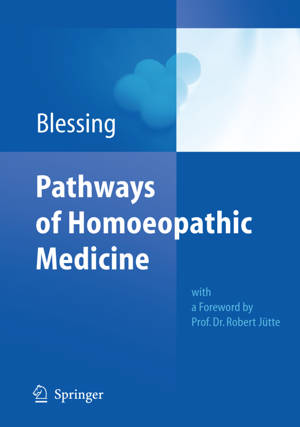
- Afhalen na 1 uur in een winkel met voorraad
- Gratis thuislevering in België vanaf € 30
- Ruim aanbod met 7 miljoen producten
- Afhalen na 1 uur in een winkel met voorraad
- Gratis thuislevering in België vanaf € 30
- Ruim aanbod met 7 miljoen producten
Zoeken
€ 52,95
+ 105 punten
Uitvoering
Omschrijving
Bettina Blessing's study follows the progress of homoeopathic therapies up to World War II. It focuses mainly on the development of double and complex remedies which were highly controversial even at the times of Hahnemann, who also experimented with double remedies. Various orientations of homoeopathy, spagyric, naturopathy and conventional medicine advocated homoeopathic remedies and supported medical concepts that were based on 'holistic' views. One of the proponents of alternative healing methods was the renowned Berlin surgeon August Bier (1861-1949). For him, homoeopathy was one of several possible medical approaches and, in accordance with Heraclitus, he argued that a 'harmonious view' of medicine was not possible as long as one of them was excluded.
Specificaties
Betrokkenen
- Auteur(s):
- Uitgeverij:
Inhoud
- Aantal bladzijden:
- 105
- Taal:
- Engels
Eigenschappen
- Productcode (EAN):
- 9783642149702
- Verschijningsdatum:
- 25/03/2011
- Uitvoering:
- Hardcover
- Formaat:
- Genaaid
- Afmetingen:
- 173 mm x 246 mm
- Gewicht:
- 362 g

Alleen bij Standaard Boekhandel
+ 105 punten op je klantenkaart van Standaard Boekhandel
Beoordelingen
We publiceren alleen reviews die voldoen aan de voorwaarden voor reviews. Bekijk onze voorwaarden voor reviews.











